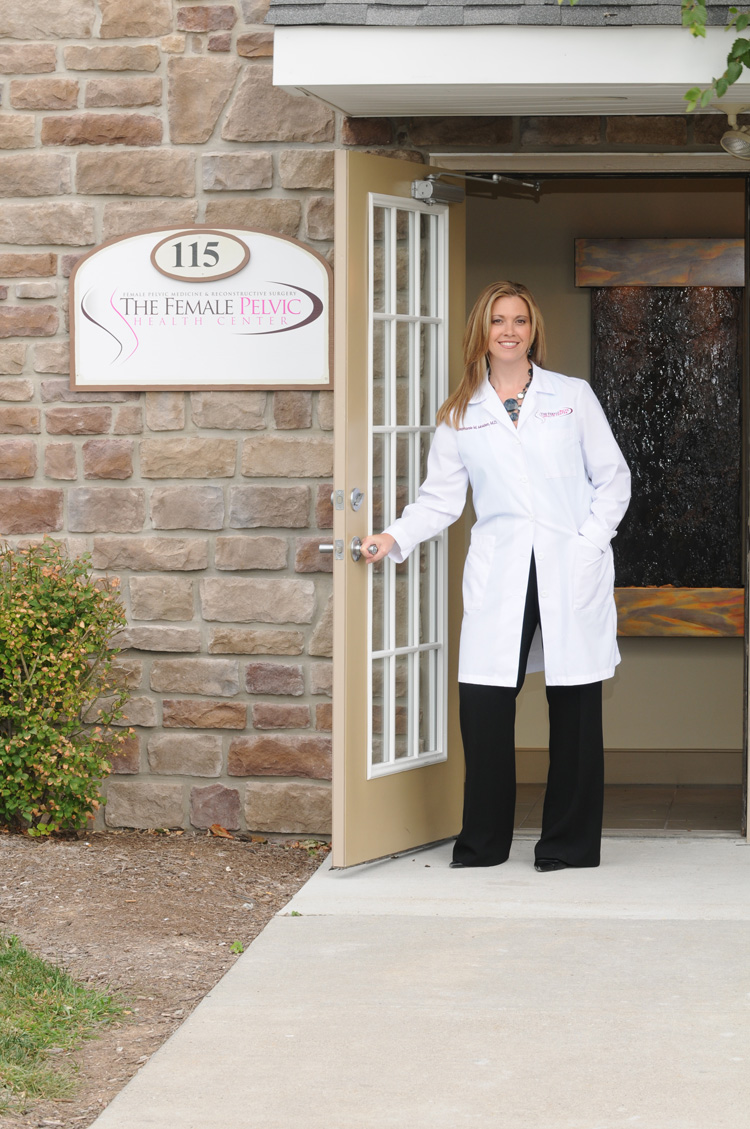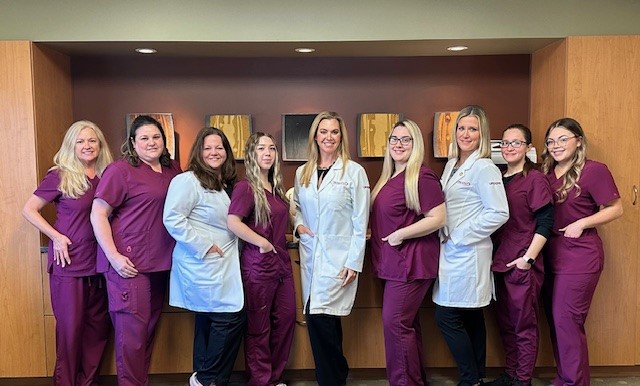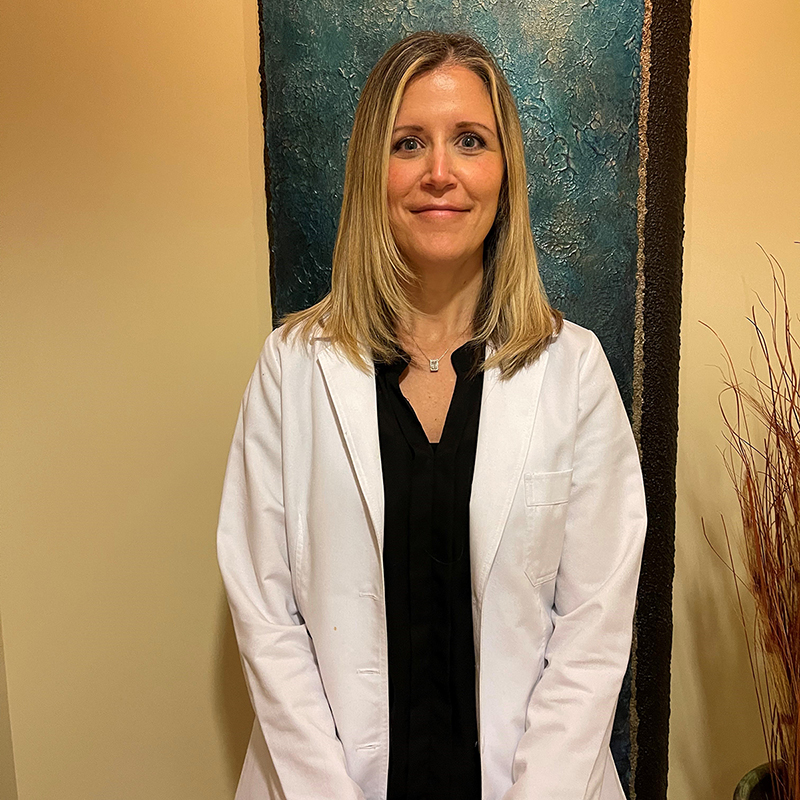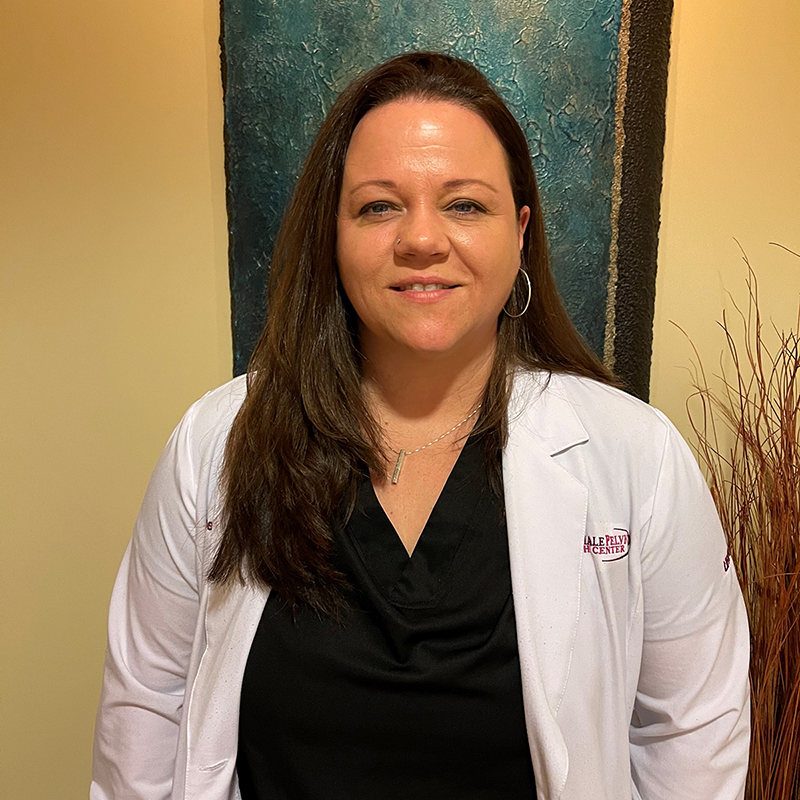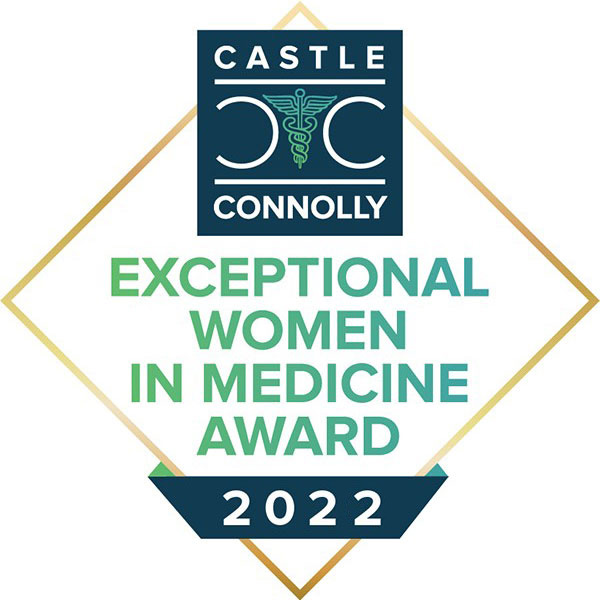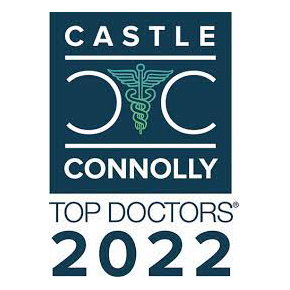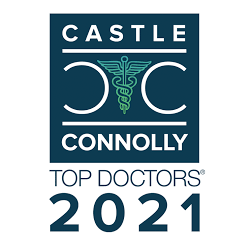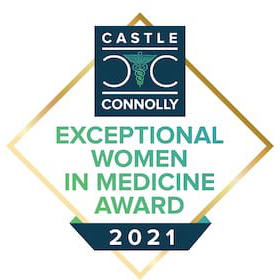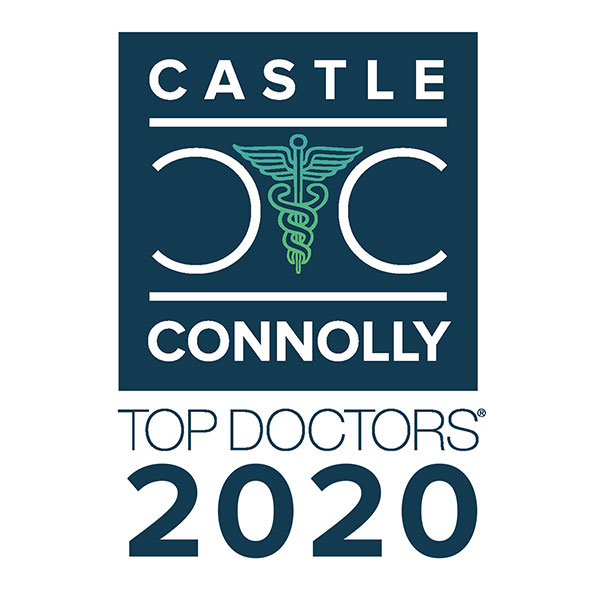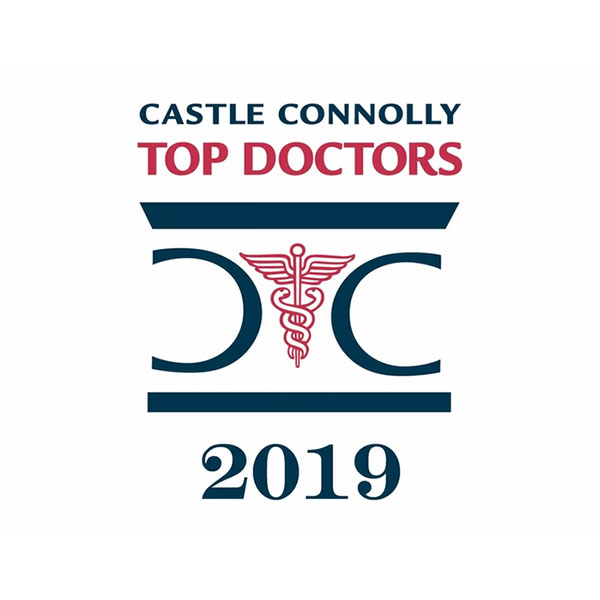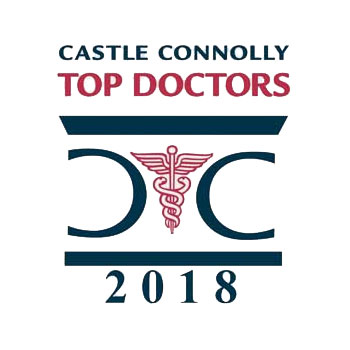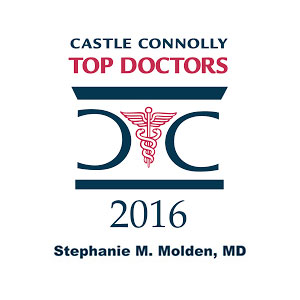About Us
Founded over a decade ago, the Female Pelvic Health Center focuses on assuring the comfort and well-being of our patients, addressing with utmost sensitivity what may be embarrassing and upsetting symptoms.
Under the direction of Stephanie Molden and supported by her all female staff, the Center provides the most current, effective treatments for female pelvic conditions in a professional, caring and compassionate manner. There is no reason why women with symptoms shouldn’t get the treatment they need to live a full and active life.
Dr. Molden is one of the region’s leading practitioners of Urogynecology, a subspecialty of Obstetrics and Gynecology, also known as Female Pelvic Medicine and Reconstructive Surgery. In July of 2013 she became one of the first Urogynecologists in the country to be Board Certified in the subspecialty of Female Pelvic Medicine and Reconstructive Surgery by the American Board of Medical Specialties. She is Fellowship trained, is an active member of the American Urogynecology Society (AUGS) and participates in ongoing continuing education and research initiatives.
We’re here to help – let us help you.
Pelvic Organ Prolapse (POP)
Prolapse affects approximately 40 percent of women, to some degree, and can be caused by vaginal childbirth, prior surgery and repetitive coughing or straining. It is further exacerbated by low estrogen resulting from menopause. It occurs when there is weakness or damage to the normal support of the pelvic floor, which holds up the pelvic organs. If the muscles of the pelvic floor and layers of connective tissue, which are called fascia, become weakened, stretched, or are torn the pelvic organs may fall downward. In severe cases, women may feel or see tissue coming out of the opening of their vagina. This can worsen over time. Read more.
Cystocele Prolapse
Also known as Dropped Bladder or Anterior Prolapse, occurs when the supportive tissue between a woman's bladder and vaginal wall weakens and stretches, allowing the bladder to bulge into the vagina. Straining the muscles that support your pelvic organs could lead to this condition. Such straining occurs during vaginal childbirth or with chronic constipation, violent coughing or heavy lifting. This also tends to cause problems after menopause, when estrogen levels decrease. For mild conditions nonsurgical treatment is often effective. In more severe cases, surgery may be necessary to keep the vagina and other pelvic organs in their proper positions. Read more.
Uterine Prolapse
Uterine Prolapse is a condition when a woman's uterus sags or slips out of its normal position. The uterus is held in place by a group of muscles and ligaments. Several factors can contribute to the weakening of these muscles and ligaments, causing the uterus to sag. These factors include the loss of muscle tone as women age, injury due to childbirth (especially women who have had many babies or large babies), obesity, chronic coughing and chronic constipation. Any of these factors can place added tension on the pelvic muscles. While mild cases of uterine prolapse often have no symptoms, more severe cases can actually interfere with bowel, bladder, and sexual functions. Read more.
Vaginal Vault Prolapse
Vaginal vault prolapse occurs when the upper portion of the vagina loses its normal shape and sags or drops down into the vaginal canal or outside of the vagina. Vaginal Vault Prolapse is usually caused by weakness of the pelvic and vaginal tissues and muscles. It happens most in women who have had their uterus removed in a hysterectomy. Symptoms include pelvic heaviness, backache, vaginal bleeding and a mass bulging into the vaginal canal or out of the vagina that may make standing and walking difficult. Read more.
Rectocele Prolapse
Also known as Rectum Prolapse, occurs when there is a break in the supportive layer of the vaginal wall. When there is a loss of support, the rectal wall will come into contact with the vaginal skin and create a bulge. The bulge will usually increase in size with bearing down, especially when having a bowel movement. Read more.
Urge Urinary Incontinence
Leakage that occurs after suddenly feeling the need to urinate The loss of bladder control, it is a common and often embarrassing problem. The severity ranges from occasionally leaking urine when you cough or sneeze to having an urge to urinate that's so sudden and strong you don't get to a toilet in time. A common cause is abnormal nerve signals that result in bladder spasms. Read more.
Stress Urinary Incontinence
The loss of control that occurs with physical exertion, including coughing, laughing or exercise. For women who do not suffer from the condition, the bladder is supported by pelvic floor muscles and ligaments, though aging, childbirth and menopause can cause these muscles and connective tissues to weaken, sometimes forcing the bladder downward and preventing the urethra from squeezing as tightly as it should. Read more.
Overactive Bladder
Overactive bladder is a condition that is characterized by sudden, involuntary contraction of the muscle in the wall of the urinary bladder. This results in a sudden and unstoppable need to urinate, even though the bladder may only contain a small amount of urine. The urge may be difficult to stop, and overactive bladder may lead to urinary frequency and incontinence. Overactive bladder (OAB) is a common condition that affects millions of Americans. Having to go to the bathroom many times during the day and night (nocturia) is another symptom of OAB.
Painful bladder syndromes (ie. Interstitial Cystitis)
Painful bladder syndrome is a chronic condition in which you experience bladder pressure, bladder pain and sometimes pelvic pain, ranging from mild discomfort to severe pain. It is often associated with urinary frequency (needing to go often) and urgency (feeling a strong need to go). This condition causes pain and pressure below your belly button. Symptoms can come and go or they may be constant.
Fecal Incontinence
Fecal incontinence is the inability to control bowel movements, causing stool (feces) to leak unexpectedly from the rectum. Also called bowel incontinence, fecal incontinence ranges from an occasional leakage of stool while passing gas to a complete loss of bowel control. Common causes of fecal incontinence include diarrhea, constipation, and muscle or nerve damage. The muscle or nerve damage may be associated with aging or with giving birth. Read more.
Vaginal Rejuvenation
Vaginal Rejuvenation is the surgical procedure performed to fix the medical diagnosis known as Vaginal Relaxation. Women with vaginal relaxation often complain they no longer feel the same amount of friction or sensation during intercourse. The main component of the lack of friction is the relaxation of the inner vagina as well there is usually a component of relaxation at the vaginal opening.
Labiaplasty
Labiaplasty is essentially a facelift for the vulva and vagina. It improves its outer appearance for a refreshed look and feel. Many women are born with enlarged labia or experience changes in the appearance of their external vaginal structures after childbirth or aging that they are not happy with. Vaginal cosmetic surgery can help improve the appearance of the external vaginal structures and reverse many of these changes that may have occurred. Read more.
Hymenoplasty
Hymen restoration (hymenoplasty) can be performed for torn hymen in patients who would like to restore their hymen. The hymen can tear early in life due to reasons other than intercourse including heavy lifting, riding a bicycle or falling and traumatizing the vulva and vaginal opening. Read more.
Perineoplasty
Women who have given birth vaginally and are experiencing vaginal looseness or itching, decreased sexual sensation, or changes in bowel habits are the most common candidates for perineoplasty, which repairs damage and resurfaces perineum tissue. Read more.
Vaginoplasty
Vaginoplasty is a popular surgical procedure in which the vaginal walls and the vaginal opening are tightened to add firmness and tone to the body. Read more.
The Female Pelvic Health Center treats a wide variety of menopausal symptoms and sexual dysfunction. Sexual dysfunction is a persistent, recurrent problem with sexual response or desire. Many women have a low sex drive or trouble having an orgasm. Some women are not bothered by this, but others are. A woman has female sexual dysfunction, also called FSD, when she is upset or unhappy about her sexual health. There are several types of sexual dysfunction: low sexual desire, trouble becoming aroused, trouble having an orgasm, or pain during sex.
Every patient we see is encouraged to share her symptoms and problems fully, so we can:
- Partner with her to develop and carry out a treatment plan suited to her needs.
- Evaluate all structures and systems of the female pelvis—organs, nerves, ligaments and muscles—to obtain a clear understanding of each patient’s condition.
- Share our findings with the patient and her referring physician, informing them of the treatment options we can deliver to best remedy the problem and achieve a positive, lasting outcome.
The Female Pelvic Health Center is now proud to offer in office non-surgical beauty boosters to reduce wrinkles and help you look younger.
You contract the muscles in your face when you smile, laugh, frown, or look puzzled. Over time, these contractions produce permanent furrows and deep wrinkles in the skin, especially around the eyes and mouth, between the eyebrows, and on the forehead. These lines can make you look older, sad, angry or tired.
At the Female Pelvic Health Center, we offer the experience and compassion that our patients want and need. When experiencing common urogynecological symptoms, our patients receive the best possible evaluation and treatment of a variety of conditions.
We Begin and End Treatment with The Patient in Mind
The Center provides only the most advanced care and cutting edge treatments for our patients—including the innovative use of robotic procedures. But, most importantly, we focus on making our services convenient and simple for patients to access. We offer you the following features:
- Acceptance and filing of most insurances, including Medicare
- Major credit cards welcome
- A short wait-time for appointments
- After-hours emergency care
- Ample and free parking
And, we are always available to answer any questions you may have. Your comfort with our practice, and your care, are always our chief concerns.
Our Center provides a unique combination of compassionate care and exceptional skill in Urogynecology, an area that is so important to so many women.
The Female Pelvic Health Center Staff
Dr. Stephanie Molden
Dr. Stephanie Molden is motivated by the gratification of helping women with pelvic disorders—including pelvic organ prolapse, urinary and bladder problems—return to their normal lifestyle. She completed her training in Urogynecology with a three-year fellowship in a leading training program in the Lehigh Valley and is board-certified in urogynecology. Dr. Molden has accumulated extensive case and surgical experience in pelvic medicine and reconstructive procedures, and is involved in educating other physicians regarding new techniques and approaches. Former Medical Director of the Robotics program at St. Mary Medical Center and the first surgeon to perform robotic surgery at the Center, Dr. Molden is on the cutting edge of the use of robotics in Urogynecology.
Tara Hunt
Tara is Women's Health Care Nurse Practitioner and has over 20 years' experience as a Labor and Delivery nurse. We are excited to have her on the team!
Sheri Tittelmeyer
Sheri was a hospital nurse for over 20 years before becoming a Nurse Practitioner. Her patients love her and she energizes our office!

